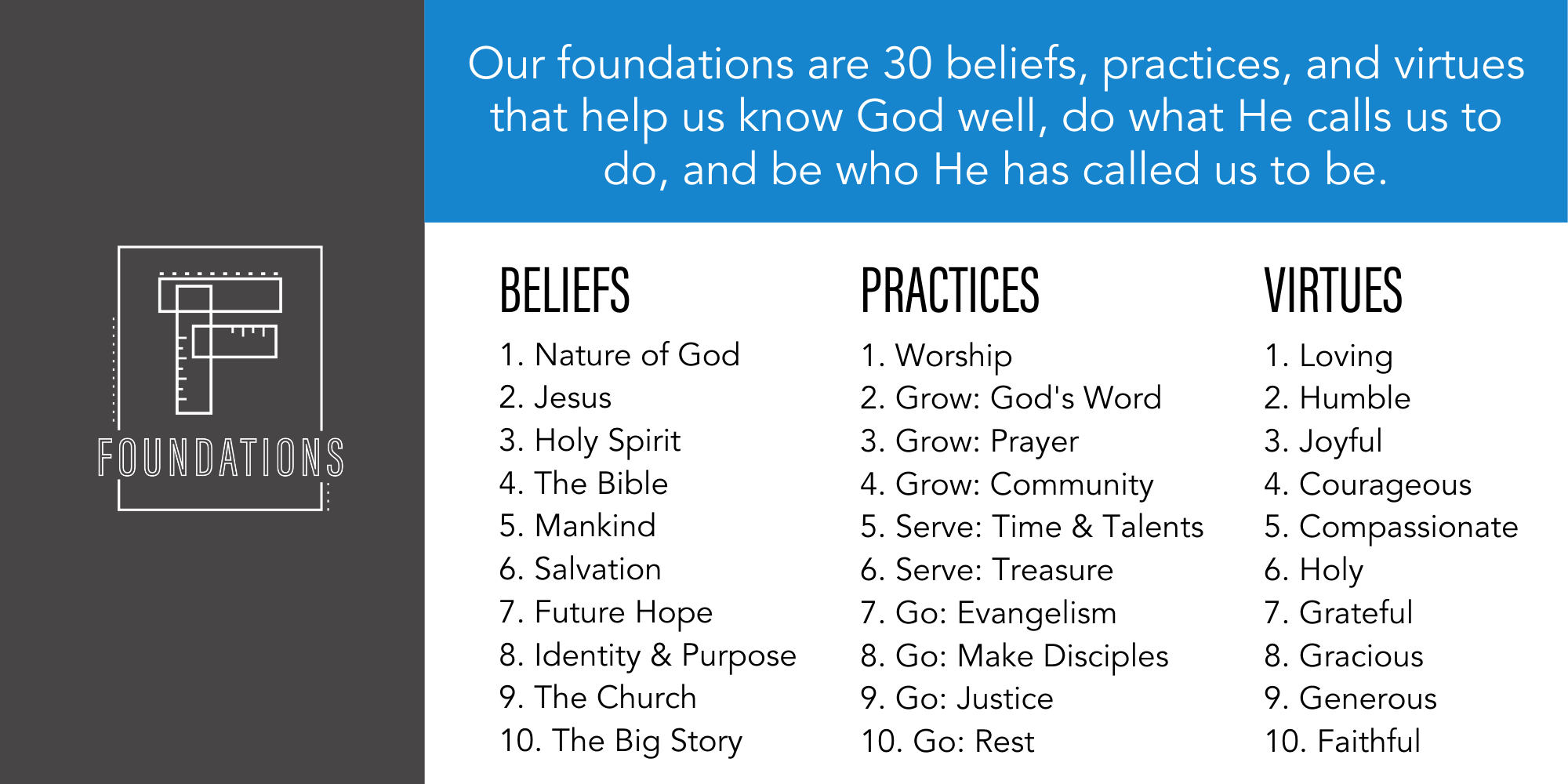Foundations Blog
We’re in a new series called “Foundations” which builds off of Jesus’ metaphor in Matt 7: “A house built on sand will never be able to stand BUT a house that’s built on the rock will never be able to fall.”

Practice #2 GOD'S WORD - Day 2
This week, we’re in Practice #2: Grow in God’s Word. Specifically, we’ll spend four days in Psalm 119.
We will enter into God’s presence through His holy Word today. If you can, give yourself 15 minutes to just be with God. Set a timer and put everything else away except for you, your Bible, and the device you’re reading this on.
Let’s start: “God, you are good and you are true. You’ve given me your Word as a gift. Thank you that I can know you. Thank you that I can worship you. Open my mind to your truth as I contemplate your words in Psalm 119. Open my eyes - let me see You.”
Now, let’s read from the NET (New English Translation):
9 How can a young person maintain a pure life? By guarding it according to your instructions.
10 With all my heart I seek you. Do not allow me to stray from your commands.
11 In my heart I store up your words, so I might not sin against you.
12 You deserve praise, O LORD. Teach me your statutes.
13 With my lips I proclaim all the regulations you have revealed.
14 I rejoice in the lifestyle prescribed by your rules as if they were riches of all kinds.
15 I will meditate on your precepts and focus on your behavior.
16 I find delight in your statutes; I do not forget your instructions.
Today, let’s practice a Bible study method known as a word study. We’re going to pick the English word “heart” which we see in verses 10 and 11 (also back in verse 2). The Hebrew term is “leb.”
Blue Letter Bible is a helpful website for word searches. You can go HERE for a definition of the term “leb.” Spend some time reading the possible definitions. Write down what you learn.
How does the definition of “heart” fit with what you previously thought? How does the definition change or alter your original impression of the word?
Based upon your new understanding of the word “heart,” what is the Psalmist saying in verses 10 and 11? What is he exhorting himself to do?
Kat Armstrong, in her book “No More Holding Back,” helpfully writes this: “Even though the word heart appears more than a thousand times in the Bible, it rarely describes just our feelings or one of our internal organs. Instead, many of the authors of Scripture use the term more broadly to mean ‘our truest inner selves’” (86). She goes on to say: “Loving God with all our hearts is not just feeling love toward God or redirecting misguided feelings back to God. It’s about letting our love for him determine how we live” (87).
What the Psalmist is expressing in verses 10 and 11 is an eagerness to live his life in alignment with God’s Word. He doesn’t want to simply feel the right feelings toward God. What he’s really after is to behave in line with truth - to live as a person of godliness and holiness.
So how about you? Does your truest inner self align itself with God’s Word? Is your deepest longing to be conformed in all your ways to God? Spend some time in prayer and confession.
Finally, let’s read from a familiar verse which teaches a similar lesson:
Deuteronomy 6:4-5
"Hear, O Israel: The Lord is our God, the Lord is one! You must love the Lord your God with your whole mind, your whole being, and all your strength.
Ask God to make this verse true of you, by the power of His Holy Spirit.
Published on 09-14-2021 @ 4:47 AM CDT
